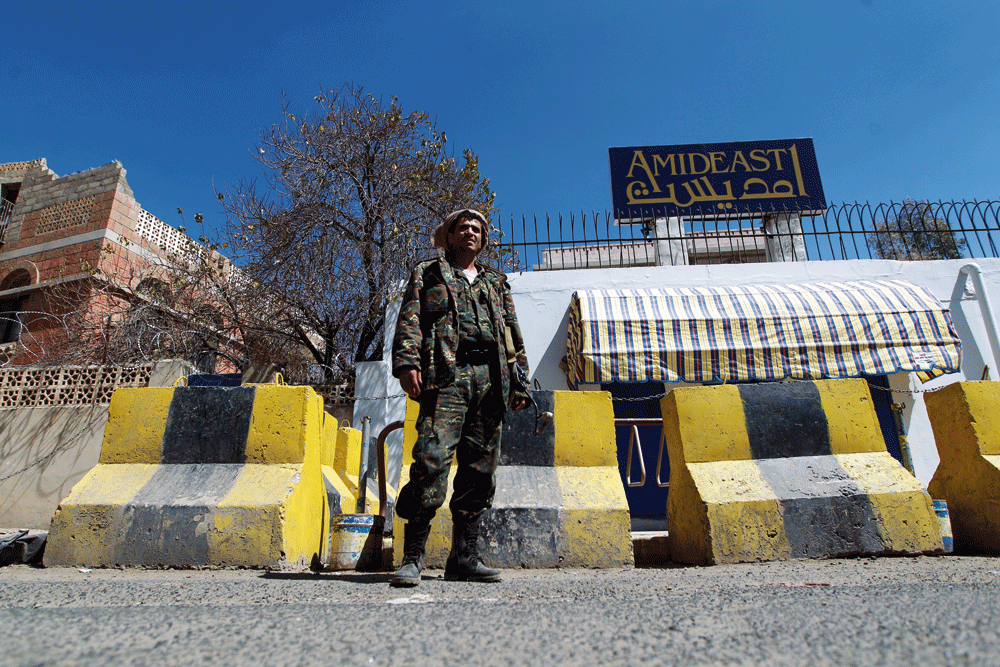Whenever we find ourselves strapped for cash, my closest friend in Yemen — an American citizen — and I joke that I should arrange for his kidnapping. We would surreptitiously take him to my village with the aim of eventually ransoming him for enough money to allow us to never have to work another day in our lives. He always responds by stressing that his country won’t pay, but inevitably someone will point out the possibility that the Qataris might.
Such jokes are drawn from an increasing phenomenon in Yemen: a foreigner gets kidnapped, the kidnappers demand a ransom, and then, allegedly, Qatar — via its allies in Sanaa — steps in to pay the ransom, securing the hostages release.
Kidnappings of foreigners in Yemen are far from new; the first incidents took place in the 1990s, in the south of the country. However, in the vast majority of cases, hostages were never harmed and ransoms were never paid. Rather than money, the demand of the kidnappers was usually in kind, such as a new road or the release of a prisoner from their tribe. As soon as the government began to respond to their demands, the hostage would be released, unharmed after something more akin to forced hospitality than a terrifying extended brush with death. Stories of kidnappings fuelled the rise of an odd — and, ultimately, poorly thought out — brand of tourism, as some foreigners travelled to the country with barely concealed hopes of being kidnapped.
Yet this phenomenon has now changed. Since 2011, kidnapping a foreigner has become one of the most lucrative of cash cows. Armed criminals now kidnap foreigners and sell them to Al Qaeda in the Arabian Peninsula (AQAP). No longer motivated by lingering issues with the government, today’s kidnappers have money in mind; in 2013 alone AQAP made an estimated $20 million plus from kidnappings, ranging from $3-5 million per person depending on their importance and citizenship.
In March 2012, a Swiss English teacher was kidnapped in Yemen for over a year. She was abducted by armed tribesmen and then sold to Al Qaeda. According to Yemeni media at that time, the Qatari government paid the ransom via its local allies in Yemen — funding her release to Doha.
A few months after she was kidnapped, I discussed her case with a prominent southern tribal leader — from a part of Yemen known for AQAP’s presence — who was involved in negotiations aimed at releasing her before giving up out of frustration. The sheikh explained the details of the mediation process at length, stressing the importance of the government’s commitment to not attempt to free hostages while negotiations were ongoing. Another prominent tribal leader actually broadcasts updates on mediations he is involved in via Twitter.
Since Al Qaeda-affiliated militants were forced to abandon their hold on Yemen’s south, their income has decreased; the loss of control has robbed it of the revenues it gained by functioning as the local government. Buying kidnapped foreigners from tribesmen and then negotiating their release for a high ransom has more than made up for the loss. In the process, business opportunities have merged for many new actors, allowing kidnappers, negotiators and sellers to reap the benefits of AQAP’s new fundraising technique.
The new cycle of business is now more firmly established than at any other time in the country’s history. Kidnapping is no longer exclusive to foreigners in Yemen: relatives of rich Yemeni businessmen have been kidnapped by tribesmen to pressure their families on land or financial disputes, albeit garnering far less attention both locally and internationally.
Yemenis are familiar with the old joke: a tribal man asks his son to kidnap a foreigner to pressure the government over his demands. The next day, his son finds a Chinese worker and takes him back to the tribe. While the Chinese worker enjoys the tribal hospitality compared to his poor working conditions, the father worries that no one has come looking. After time passes, the father yells at his son for failing to kidnap a more skittish western European, leading him to release the hostage, who is reluctant to abandon the free food and lodging.
The joke is no longer funny. In its most recent resolution concerning Yemen in late February, the UN Security Council stressed that countries should not pay ransoms to groups who kidnap individuals. The topic has escalated to make the whole world worry about the new habit of making quick cash. Just as counter-terrorism in Yemen is a never ending cash cow, kidnapping is now a real and serious problem. At the end of the day, it’s business.








